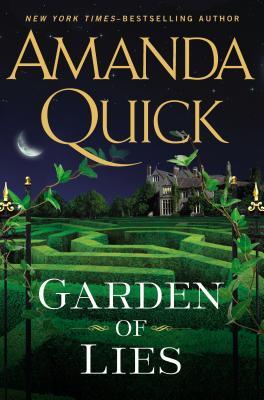 Garden of Lies by Amanda Quick, Jayne Ann Krentz
Garden of Lies by Amanda Quick, Jayne Ann Krentz Format: ebook
Source: purchased from Amazon
Formats available: hardcover, large print, paperback, ebook, audiobook
Genres: historical romance, romantic suspense
Pages: 359
Published by Berkley on April 21, 2015
Purchasing Info: Author's Website, Publisher's Website, Amazon, Barnes & Noble, Kobo, Bookshop.org
Goodreads
The Kern Secretarial Agency provides reliable professional services to its wealthy clientele, and Anne Clifton was one of the finest women in Ursula Kern’s employ. But Miss Clifton has met an untimely end—and Ursula is convinced it was not due to natural causes. Archaeologist and adventurer Slater Roxton thinks Mrs. Kern is off her head to meddle in such dangerous business. Nevertheless, he seems sensible enough to Ursula, though she does find herself unnerved by his self-possession and unreadable green-gold eyes… If this mysterious widowed beauty insists on stirring the pot, Slater intends to remain close by as they venture into the dark side of polite society. Together they must reveal the identity of a killer—and to achieve their goal they may need to reveal their deepest secrets to each other as well…
My Review:
The popular perception of heroines in historical romance is that their lives were restricted and that they were supposed to be innocent even into adulthood and as a consequence were naïve and/or ripe to become damsels in distress who needed to be rescued by the hero.
An image that probably wasn’t true even among the aristocracy, and certainly couldn’t have been outside it. Which doesn’t prevent it from still being a popular perception. But readers aren’t looking for innocent damsels in distress nearly as much as they used to. We’re looking for women we can manage to identify with.
In that sense, Ursula Kern is a fascinating choice as a heroine. She’s a widow. She’s permitted to no longer be innocent or naïve. She’s on her own, and she owns her own business – not as a member of the demimonde – but a respectable business employing respectable women who are able to earn respectable incomes.
Whatever hopes and dreams she may have, she is expected to present herself as a responsible, respectable, professional adult person. She’s been through enough to know that the only person who will take care of her is her. As a woman with neither a husband nor living parents nor male siblings, there is no one to gainsay her determination to make a living for herself and to provide good livings for as many women as possible in her employ.
Ursula may not have family, but she does have friends as well as colleagues and employees. The late Anne Clifton was all of the above; an employee who became a colleague and friend. Ursula Kern is certain that Anne Clifton was murdered. Finding her killer is the last thing that Ursula can do for her friend – and she’s determined to do it.
She just needs a bit of help. Or at least she hopes for it. And that’s where Slater Roxton comes in. Slater, a man with a mysterious incident in his past that has fueled the gossip rags and gutter press for years, is an expert on finding lost artifacts and tombs – where he once got trapped.
(Come to think of it, he’d probably be a contemporary of Dr. Henry Walton Jones, Sr., the father of archeologist, treasure hunter and troubleshooter Indiana Jones. If there turned out to be some influence there I wouldn’t be at all surprised.)
Slater, for reasons of his own, some more obvious than others, can’t let Ursula go off on her investigation all alone. It’s not that he doesn’t believe she quite capable as an adult and as a businesswoman, but ferreting out the truth about dastardly murderers who have so far been successful at making their crimes look like accidents is a dangerous business.
A business with many more dangerous tentacles – or should I say twisted roots and entangling vines – than either Slater or Ursula ever imagined.
 Escape Rating A-: I read this for fun. I was bouncing hard off of everything and went looking for a story that I knew would be instantly absorbing. I was highly tempted to read this author’s Lightning in a Mirror which is out next week, but then I remembered that Garden of Lies was STILL on my “Highly Anticipating” Shelf on Edelweiss. In fact, it was the oldest book on that shelf. So here we are.
Escape Rating A-: I read this for fun. I was bouncing hard off of everything and went looking for a story that I knew would be instantly absorbing. I was highly tempted to read this author’s Lightning in a Mirror which is out next week, but then I remembered that Garden of Lies was STILL on my “Highly Anticipating” Shelf on Edelweiss. In fact, it was the oldest book on that shelf. So here we are.
Garden of Lies was every bit as instantly absorbing and fun as I hoped, even if I didn’t completely buy the inevitable romance between Slater and Ursula. The rest of the story, especially the uncovering of the full scope of the criminal plotting AND the nefarious dealings on both sides of the pond, was absolutely riveting.
One of the things I really enjoyed about this book was the way that all the women in the story, including the secondary characters, dealt with their world in a way that seemed realistically sensible. Not just that Ursula and the women she employs have made their own way independently, but the way that Slater’s mother, the actress who was the lifelong paramour of a titled noble, knew exactly what she was letting herself in for and moved through the world as she found it and not as anyone dreamed or hoped it would be. That his late father was sanguine enough to not merely acknowledge Slater was his but to trust his illegitimate son to protect his legal widow and legitimate heirs from her abusive father.
Their approaches to their world make sense in a way that isn’t always true in historical romance.
The mystery plot was marvelously convoluted and the reveal of it was appropriately painstaking. Ursula starts with the death of her friend, finds evidence that her death was murder, and then begins to dig. The solution is revealed in layers, as each new bit of information leads to a place that no one had foreseen from the opening. The web was woven very tightly, and it takes and appropriate amount of time and effort to unravel it fully.
 As Ursula and Slater eventually manage to do. I liked them as partners, I just didn’t see enough of them “falling” in love to buy that they really were in love. But I’m still glad they found their slightly unconventional HEA.
As Ursula and Slater eventually manage to do. I liked them as partners, I just didn’t see enough of them “falling” in love to buy that they really were in love. But I’m still glad they found their slightly unconventional HEA.
There was no paranormal woo-woo in this standalone book, as there so often is in the author’s Arcane Society series, yet it still had some of the same feel with its nefarious plot, double-dealing, wheels within wheels criminal organization, and the investigation into dirty deeds done in very dark places for both evil and mercenary ends.
But the author has two books with some of that paranormal vibe coming soon, Lightning in a Mirror next week and When She Dreams in April. My reading appetite for both has certainly been whetted!

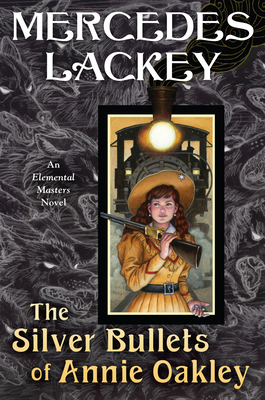 The Silver Bullets of Annie Oakley (Elemental Masters, #16) by
The Silver Bullets of Annie Oakley (Elemental Masters, #16) by 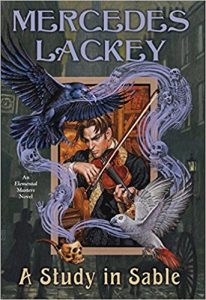 I stopped reading the
I stopped reading the 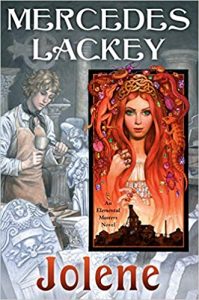 The Wolves – whose identity has never been conclusively determined – starved her, cheated her, threatened her and physically and mentally abused her at every turn for two years, beginning when Annie was nine years old.
The Wolves – whose identity has never been conclusively determined – starved her, cheated her, threatened her and physically and mentally abused her at every turn for two years, beginning when Annie was nine years old.


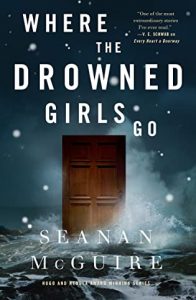 Blog Recap:
Blog Recap: Coming This Week:
Coming This Week:















 Black Water Sister by
Black Water Sister by 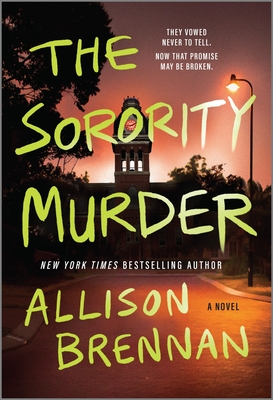 The Sorority Murder by
The Sorority Murder by 
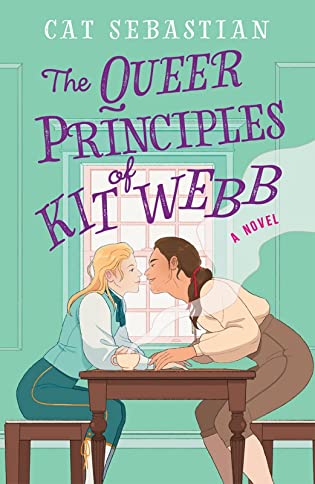 The Queer Principles of Kit Webb (The Queer Principles of Kit Webb, #1) by
The Queer Principles of Kit Webb (The Queer Principles of Kit Webb, #1) by 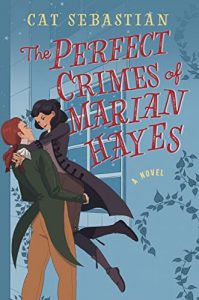 This is all in the way of saying that I had fun reading this book, just not as much fun as I expected, and not necessarily the kind of fun I expected, either.
This is all in the way of saying that I had fun reading this book, just not as much fun as I expected, and not necessarily the kind of fun I expected, either. Fated Blades (Kinsmen, #3) by
Fated Blades (Kinsmen, #3) by  First, I have to say that it was a surprise that it existed. The first two books in the
First, I have to say that it was a surprise that it existed. The first two books in the  Escape Rating A-: Fated Blades is a tremendously fun use of all of the best tropes in science fiction romance – not that most of them can’t be applied to other types of romance as well!
Escape Rating A-: Fated Blades is a tremendously fun use of all of the best tropes in science fiction romance – not that most of them can’t be applied to other types of romance as well!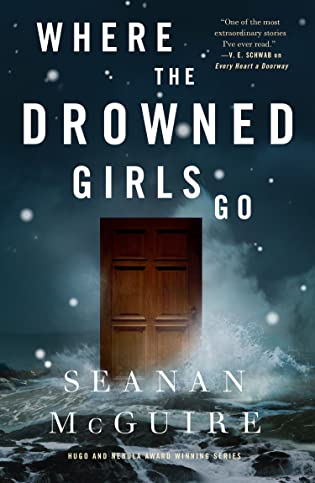 Where the Drowned Girls Go (Wayward Children, #7) by
Where the Drowned Girls Go (Wayward Children, #7) by 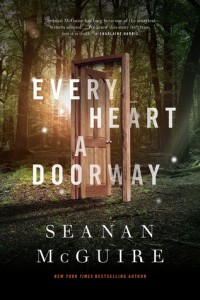 We were introduced to Eleanor West’s Home for Wayward Children in the first book in this series,
We were introduced to Eleanor West’s Home for Wayward Children in the first book in this series,  Cora Miller, whom we met in
Cora Miller, whom we met in 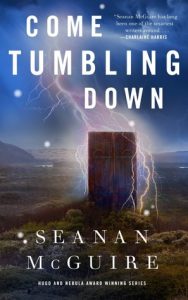 She’s already internalized the messages for girls to be “girly”, flirty and tiny and weak and thin, and has a lot of self-hatred because she’s none of the above. The Whitethorn Institute encourages the children in its dubious “care” to show the worst of themselves, so Cora is bullied and teased for being different – in addition to everything else that’s wrong at Whitethorn.
She’s already internalized the messages for girls to be “girly”, flirty and tiny and weak and thin, and has a lot of self-hatred because she’s none of the above. The Whitethorn Institute encourages the children in its dubious “care” to show the worst of themselves, so Cora is bullied and teased for being different – in addition to everything else that’s wrong at Whitethorn.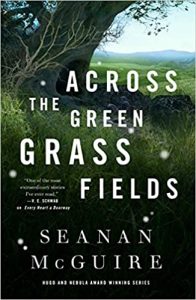 While this particular entry in the series turned out to be an unexpected readalike for
While this particular entry in the series turned out to be an unexpected readalike for 
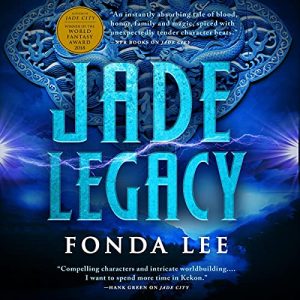 Blog Recap:
Blog Recap: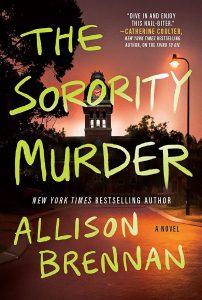 Coming This Week:
Coming This Week: